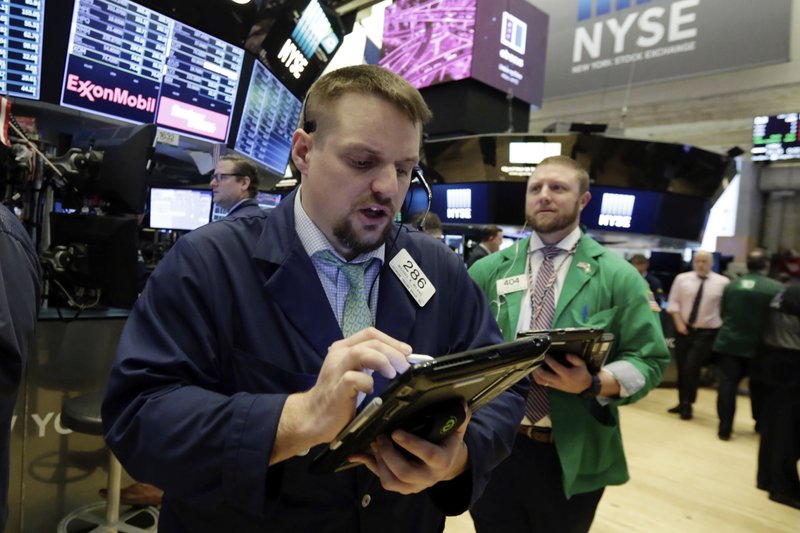NEW YORK -- U.S. stocks edged higher Friday as gains from energy companies, industrial firms and smaller companies helped the market end a modest losing streak.
Oil and gas companies climbed along with the price of oil Friday while industrial companies recovered some of the losses they sustained earlier this month. Beauty products retailer Ulta and software company Adobe rose after strong quarterly reports. Tiffany dropped after reporting weak sales, and online retailers Overstock.com and Wayfair slumped as investors worried about a possible price war.
All this week, stocks moved higher in early trading only to shed those gains as the day went on. They broke out of that pattern Friday, even though the gains were modest.
The S&P 500 index gained 4.68 points, or 0.2 percent, to 2,752.01. The Dow Jones industrial average added 72.85 points, or 0.3 percent, to 24,946.51. The Nasdaq composite rose 0.25 point to 7,481.99. The Russell 2000 index of smaller-company stocks jumped 9.43 points, or 0.6 percent, to 1,586.05.
"From an investor point of view, the fact that we haven't rallied right back to the highs is a good thing," said Randy Frederick, vice president of trading and derivatives at Charles Schwab. Positive news about the economy has been countered by concerns about rising tensions over international trade.
"The pullback that we've been in is pretty much driven by President Trump's proclamation about tariffs," Frederick said.
After a dramatic drop at the beginning of February followed by a rapid recovery of some of their losses, stocks have bounced around for the past month. The Dow, which surged past 26,000 in mid-January, has been wobbling around 25,000 for about a month.
The S&P 500 fell for the first four days of the week and finished with a decline of 1.2 percent. The worst losses came Tuesday and Wednesday after President Donald Trump blocked Singapore-based chipmaker Broadcom's effort to buy its U.S. rival Qualcomm and European leaders warned about the risks of trade disputes.
The Federal Reserve said factory output continued to rise as companies in the U.S. produced more cars, computers and furniture. It reported that manufacturing output rose 1.2 percent in February after three months of weak results. Factory output has increased 2.5 percent over the last year.
The Commerce Department said homebuilders started work on fewer apartment buildings in February, and that caused overall housing starts to drop 7 percent. Builders have shifted their efforts to single-family homes recently as the economy has improved.
Benchmark U.S. crude rose $1.15, or 1.9 percent, to $62.34 a barrel in New York. Brent crude, used to price international oils, climbed $1.09, or 1.7 percent, to $66.21 a barrel in London.
Tiffany dropped $5.20, or 5.1 percent, to $97.51 after it reported weaker sales than analysts expected. Its forecast for the current year was also below what investors were looking for.
Online discount retailer Overstock.com said profit margins have fallen hard because of competition with Wayfair, and CEO Patrick Byrne said the company will "respond in kind," meaning Overstock will try to ramp up its growth and will be willing to lose money to achieve that goal. The stock dropped $2.50, or 5.2 percent, to $45.70 while Wayfair lost $5.01, or 6 percent, to $78.95.
Business on 03/17/2018

